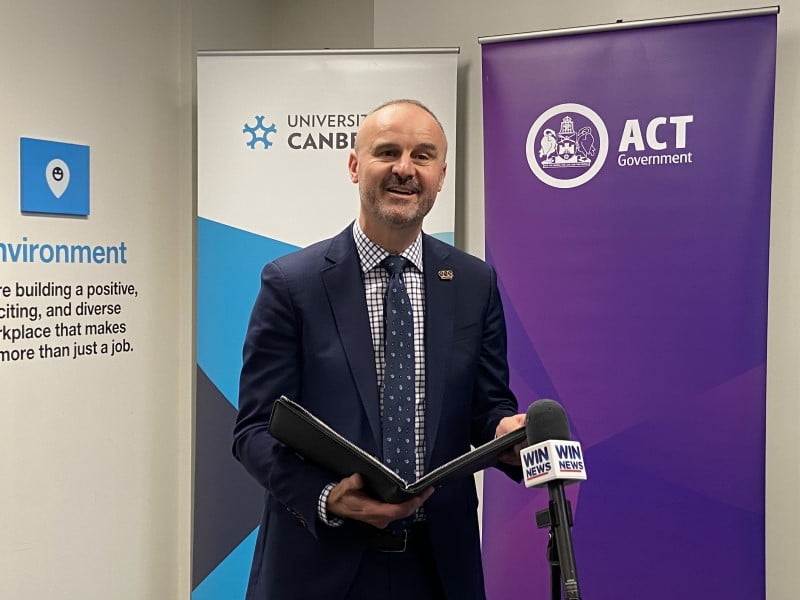The ACT government will provide half a million dollars over two years to support a new innovation hub focused on furthering research into open source technologies at the University of Canberra.
The Open Source Institute (OpenSI), seeded by NetApp at a cost of $900,000, launched on Monday in the hopes of establishing Canberra as an open source leader.
Total investment in the institute is $2.3 million, with the remaining $900,000 in funding committed by the University of Canberra.
Open source technologies are those that make source code publicly available. Popular examples include operating system Linux and the programming language Python.

The institute will focus on four areas of open source research: data solutions at scale, cybersecurity and privacy, artificial intelligence and machine learning, and open source business models.
It builds on the existing partnership between the University of Canberra and Instaclustr, which began in May 2021.
Instaclustr was founded at a shared innovation space on the campus of the Australian National University and was acquired by NetApp last year for $500 million. It employs around 120 people and is currently based on the University of Canberra campus.
Three PhD scholarships and three technology research projects will initially be supported through OpenSI. The projects will be aligned with the interests of Instaclustr and NetApp.
In future, the institute will open to accepting research proposals by other interested companies.
While research undertaken at the University of Canberra is owned by the university, deputy vice-chancellor for research and enterprise Professor Lucy Johnston said that ownership arrangements would be more flexible under the partnership, as with the university’s other industry partnerships.
She said “deep partnerships” with industry help to drive future growth, providing relevant skills to the next generation of workers but also the “capacity to do industry focused research and applied research”.
“The university celebrates and focuses on the translation of our research and the impact that our research has and so the more we are able to do that, then then the happier we are,” Professor Johnson said while launching the institute.
Australian Capital Territory chief minister Andrew Barr said he was “very pleased” to be supporting the new institute, noting that the ICT sector is a major driver of employment in the territory.
“If more could follow the Instaclustr story, our economy would be even stronger,” he said.
Asked whether open source technologies could present a sovereign risk if deployed widely, NetApp vice president and general manager Peter Lilley — formerly Instaclustr chief executive and co-founder before it was acquired — said open source can be advantageous compared to technologies that are controlled by a single developer.
“Open source technology that’s inspectable, testable, verifiable in any one of a number of ways has an advantage over closed source software, where it’s under the control of maybe a particular developer,” he said.
“It’s at the whim of their development life cycles and the like. [Open source] is a much more powerful model to be actually implementing solutions using or leveraging these very powerful open source technologies.”
Mr Lilley also dismissed concerns that open source software would expose vulnerabilities to potential adversaries, highlighting that open source technologies often attract “thousands of developers in a community collaborating and inspecting the software, testing it, developing it, looking at and trying to identify vulnerabilities”.
Not-for-profit governing frameworks such as the Apache Software Foundation and the Cloud Native Computing Foundation also exist to organise these communities “like full software engineering projects, that is a great safety valve and a level of protection against those kinds of vulnerabilities”, he added.
Do you know more? Contact James Riley via Email.

